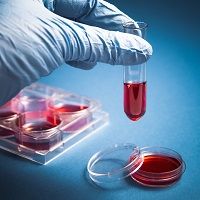Determining Hepatitis C Drug Resistance Before Prescribing Made Easier
Researchers from Hiroshima University have created a system to detect a drug-resistant viral strain mutation in hepatitis C (HCV) cases.

Researchers from Hiroshima University have created a system to detect a drug-resistant viral strain mutation in hepatitis C (HCV) cases.
The Centers for Disease Control and Prevention (CDC) estimates that 3.2 million Americans are living with chronic HCV. Previous findings indicated that patients with HCV accompanied by a NS5A-Y93H mutation show resistance towards drug treatments. Kazuaki Chayama, MD, PhD, led the development of a fast and effective method to determine the viral strain.
“Several mutations in HCV structural and non-structural proteins have been reported to be associated with interferon resistance, including Core, NS3/NS4A, NS5A, and E2,” the authors wrote in PLOS One.
Viral mutations are often determined using direct sequencing, however, the viral subpopulations cannot drop below 10 to 20%. Next generation sequencing (NGS) methods, such as the Invader assay, are able to detect mutations with a frequency as low as 1%, but it is not a common practice due to the expense and complexity. Chayama and her team developed a wallet-friendly system based off the Invader assay that can sense the NS5A-Y93H drug resistant mutation.
Using 702 serum samples from Japanese patients with HCV genotype 1b, the researchers extracted RNA and evaluated NS5A sequences. The system indicated a 98.9% success rate in determining resistance. The method’s efficiency fell between those of deep-sequencing and direct sequencing.
“Our assay system also showed a much lower detection limit for Y93H than using direct sequencing, and Y93H frequencies obtained by this method correlated well with those of deep-sequencing analysis,” Chayama, a professor at Hiroshima University, said in a news release.
This new assay system was able to work with an Y93H detection limit of about one to 2%. In addition, the system estimated that 23.6% of patients with HCV carry the mutant strain. However, the researchers noted that it was not as sensitive as deep-sequencing.
“The information of NS5A-Y93H strain may provide important information not only for treatment decisions but also for prediction of disease, progression in HCV genotype 1b patients,” the team concluded.